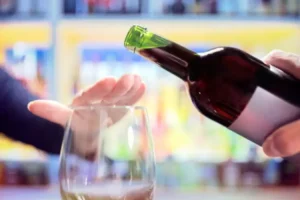
This means taking care to not put yourself in situations where your recovery is likely to be at risk. Rita and Ralph (names changed) were a couple dealing with emotional neglect in their marriage. Both successful professionals and active parents, they even went on regular date nights. This site is not intended to provide, and does not constitute, medical, health, legal, financial or other professional advice. For many, the fear of judgment becomes an obstacle too great to overcome, prolonging their suffering and preventing them from taking steps toward recovery. Recognizing this pattern is the first step toward creating a more inclusive https://ecosoberhouse.com/article/how-to-avoid-drinking-again-after-sobriety/ and supportive environment where seeking help is seen as an act of strength.

Practical Steps for Emotional Healing in Your Relationship
When honestly looking at our past behavior while under the influence of drugs or alcohol, I think it isn’t easy to feel good about yourself. And perhaps that is the easiest and most simple definition of self-esteem. Common feelings turned inward, experienced by people in active use are anger, loneliness, shame, guilt, and inadequacy, among many others. Our website provides access to information and support for people seeking help. We are not a medical center or doctors and cannot prescribe treatment. Our free phone numbers and chats allow you to connect with various institutions where you can receive professional help.

ACTIONS
That push and pull of wanting to stop, then having to use, can play havoc with how we feel about ourselves. Unfortunately, many people who suffered through addiction come from less than ideal and emotionally functional families. Now I’m not all about blaming our parents, I really believe they did the best job that they could, but the fact is some of us were raised in less than ideal family situations. If we are raised in a healthy family, a Leave It to Beaver situation, where our needs are met, love and reassurance freely given, I don’t think there will be low self-esteem issues. Naturally, previously, you may have only gravitated towards other substance users.
2 Ocean Altimetry and Temperature
They are needed to create deep bonds, for companionship, and to provide the needed emotional support needed to thrive post-rehab. Relationships are effective in helping people in recovery stay healthy and increase their wellbeing. Healthy relationships bring out the best in both parties, and are a safe space for their fears. Setting healthy boundaries is crucial for maintaining relationships in recovery. Boundaries help manage expectations and ensure that your needs and the needs of your loved ones are met. Be clear about your limits, especially regarding situations that may threaten your sobriety, and respect the boundaries set by others.
Those healthy relationships provide emotional support, a safety net, and a sense of belonging. They can also help motivate your loved one to stay committed to recovery. When these bonds are built on empathy, understanding, and mutual respect, they can be incredibly powerful in preventing relapses.

Consider ways to demonstrate genuine remorse and a commitment to change. This may involve writing letters, arranging meetings, or seeking professional mediation if necessary. Take the time to reflect on your past behavior and identify the people you have harmed. This may involve making a list, taking inventory of the damage caused, and examining the underlying reasons for your actions. Moreover, codependent behavior can involve attempting to control or “fix” the addict’s problems. Loved ones may become excessively involved in the addict’s life, micromanaging their decisions and choices to keep them away from their addictive behaviors.
- Engagement in these challenging contexts requires a balance of approaches, the development of personalised understanding and use of the self to facilitate recovery-oriented growth of the patient (McAllister et al., 2019).
- After all, you’re finally taking pro-active and positive steps to improve your life.
- For people who want to focus on relationship recovery outside of those therapies, it’s helpful to build relationship skills broadly to rebuild damaged relationships and also build new healthy connections moving forward.
And when relationships in recovery you are singled out as a good person who’s terrific to be with, your self-esteem grows. You’ll never improve your self-esteem if you try to live life and find acceptance as a projected mask of yourself. Pretending to be someone you’re not will fail to affirm your uniqueness and potential and will only make you sadder about your circumstance.
Listen and Validate Feelings
It is dysfunctional as it enables individuals with substance use disorders, careless life decisions and toxic habits. Unfortunately, people with addiction are inclined to isolate, effectively cutting themselves off from the health-enhancing effects of social and emotional support. This support becomes even more important in early recovery when people are struggling to get used to life without using alcohol and other drugs. At this time, developing relationships that provide mutual support and connection is essential. Twelve-step programs and other mutual-aid resources help serve this vital purpose.
- These changes can shatter trust and create a lot of negative emotional experiences in your relationships.
- On monthly time scales, P-ET serves as a proxy for moisture flux convergence in the atmospheric water budget.
- To determine if this decline represents a statistically significant structural change in the global land TWS time series, we used a Bayesian ensemble algorithm for changepoint detection (Zhao et al. 2019).
- Addiction can be a lonely and isolating experience, often making individuals feel disconnected from their surroundings.
5. Assessment of methodological quality
Once the symptoms become worse, individuals may self-medicate and turn to substance abuse for support. Forming and maintaining healthy relationships is critical for those in recovery for drug and alcohol addiction; these kinds of relationships help people maintain sobriety for the long term. In any close relationship, people share important aspects of their life experience and who they are. As a result, it’s essential to consider sharing the fact that you are in recovery with those people with whom you are or would like to become emotionally close—assuming that they aren’t already aware of it. But, how do you know when to let others know that you’re in recovery from addiction? Many people have a lot of uncertainty about disclosing their status as a person in recovery in new relationships.


